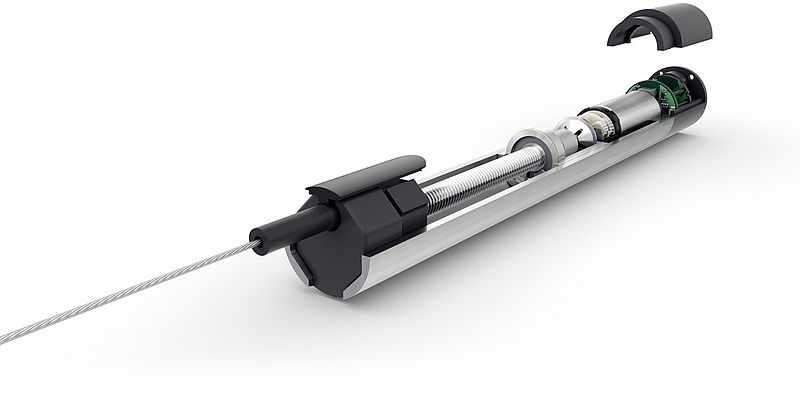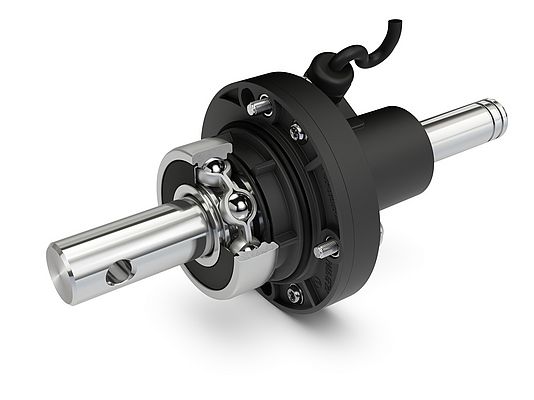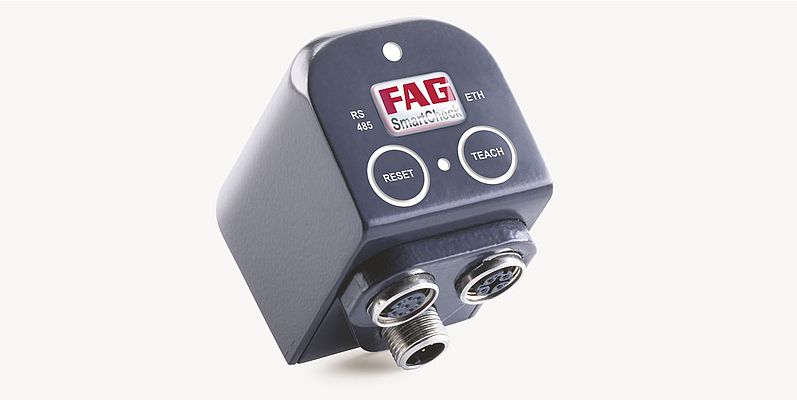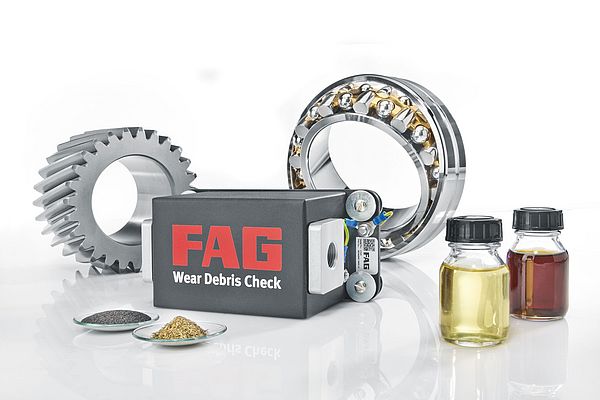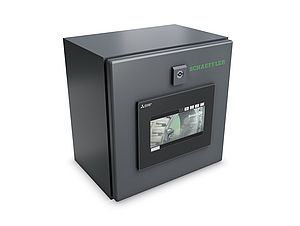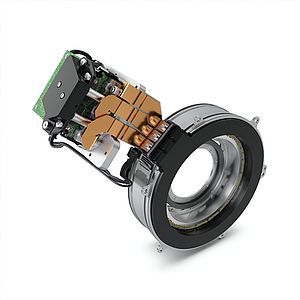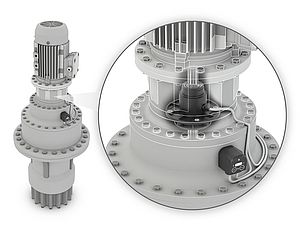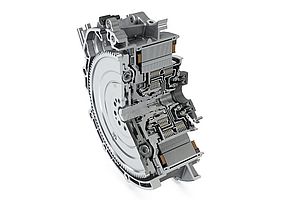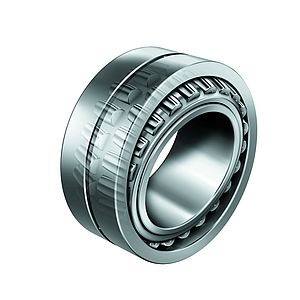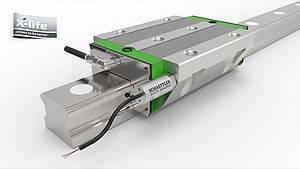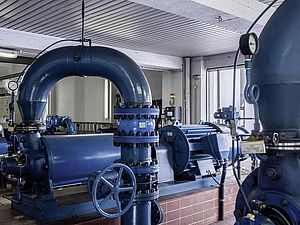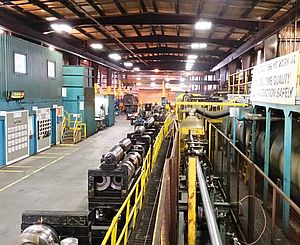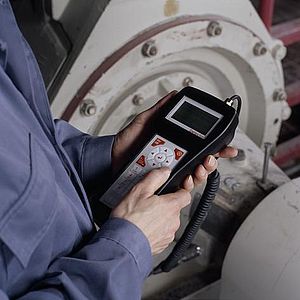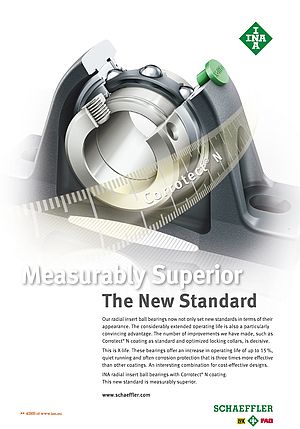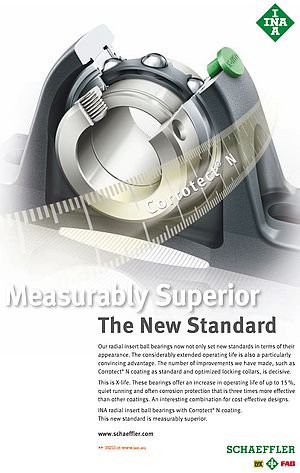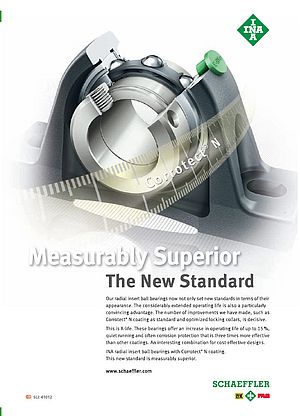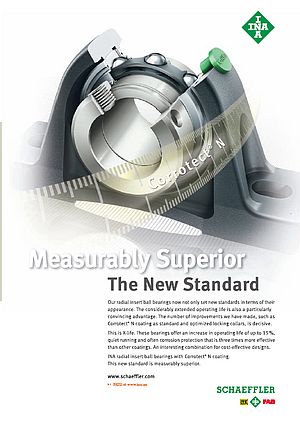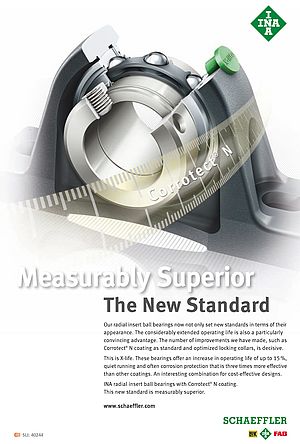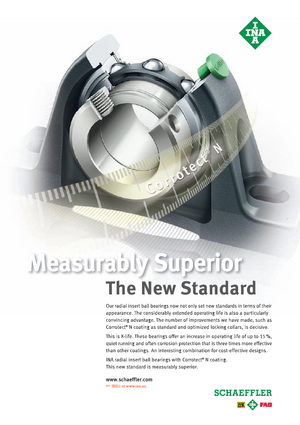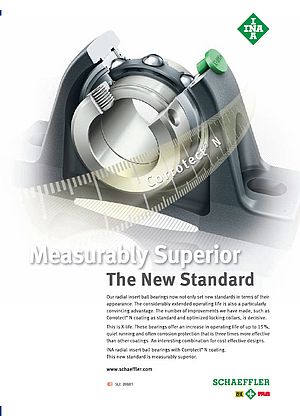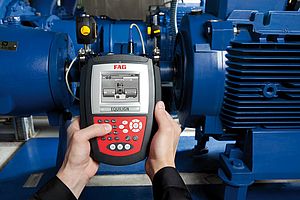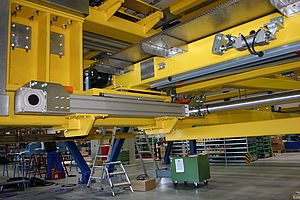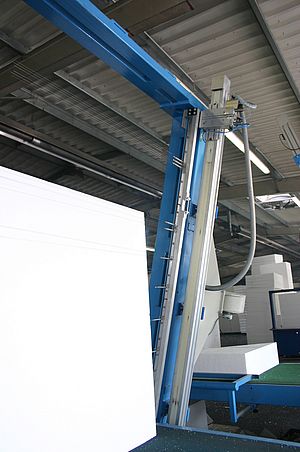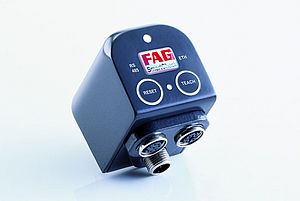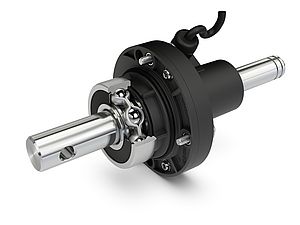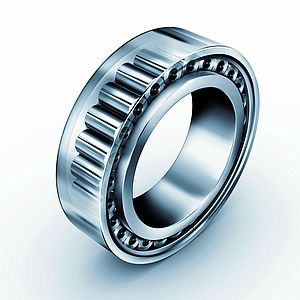Intelligent bearing solutions allow important operating conditions in machines, plant or products to be assessed and controls to be put in place. As a rolling bearing manufacturer, Schaeffler's products therefore have a central role in the "Industrie 4.0" initiative. As the bearings are responsible for guidance and positioning as well as supporting forces and movement, the many variations in the production process or in the products themselves can be detected immediately in the bearings. This includes variations in the bearings' wear and lubrication status. By accurately measuring data from condition monitoring (lubrication status, wear particles, temperature, vibration, frequencies) as well as force, torque and speed, it is possible to form a precise, virtual image of a machine's condition, the majority of processes (process monitoring) as well as production status.
Digitalization and IT are laying the foundations for a complete networking of development, production, finished products and maintenance - this is the aim of the "Industrie 4.0" initiative. The objective is lower production costs, shorter development cycles, smaller lot sizes. The overall aim is for production to organize itself, products to know at any point where they are in the production run and machines to have their own independent control mechanisms. In order to achieve this product/machine and machine/machine network, two disciplines have to work together which have previously had little to do with each other: mechanical engineering and IT.
Availability of production machinery and integrated quality assurance
The key enabler for intelligent, networked production is knowing the availability of production machinery at any particular point in time and being able to plan for this. Completely new approaches in quality assurance are required in order to achieve production which can manage itself. In automated, networked production, unplanned downtime and defective parts quickly lead to chaos. Monitoring the condition of machinery and the various production processes is therefore the major challenge for mechanical engineering in the "Industrie 4.0" initiative.
Firstly, machinery and products with sensors, data and software will be in a better position to "self"-diagnose their condition and therefore their maintenance requirements. In theory, machine utilization, process accuracy and availability can be balanced more accurately and increased. The prerequisite here is the ability to convert the captured data into information and specific measures. This assumes that the behavior of manufacturing processes, machinery and products can be qualitatively and quantitatively predicted. How can this be achieved?
Sensor technology for Industrie 4.0
New sensor technology from Schaeffler allows material stresses in drive shafts to be measured directly and converted into an accurate torque signal. Why is this particularly important for "Industrie 4.0"? In many machines, the control system calculates the torque at a nominal value for the motor and sets it electronically. Torque sensors are more accurate and can be located at the point where a specific torque is to be measured. Temperature therefore no longer has any influence on the hydraulics or friction in interconnected gears. Torque sensor technology is already being used in agricultural machinery.
The sensors not only allow the torque but also the speed to be measured; this in turn allows the power transfer to be calculated. Torque, speed and power can be continuously monitored. The loading history for the bearing supports and the complete drive chain can be determined from these data which in turn allow further conclusions to be drawn, e.g. the residual operating life.
Condition monitoring as a prerequisite for predictive maintenance
Schaeffler's FAG SmartCheck is an on-line system which provides comprehensive information on the condition of machine components while taking into consideration additional parameters such as torque. The device is part of the control system for the machine and is therefore an integral part of the monitoring process.
The FAG Wear Debris Check monitors the increase in particlulates or contaminants in oil circuits in, for example, industrial gearboxes and evaluates this information by the material and its size. This sensor systems can be easily integrated into monitoring and control systems. When this is combined with vibration analysis, it is possible to identify defective components in a gearbox. This allows the scheduling of delivery times, replacement parts orders and repairs to be fully automated.
Innovative business models bring significant opportunities
The next step is to be able to predict when operating materials should be changed or the timing and extent of repairs by using condition and process monitoring. Or the degree to which machine utilization should be adjusted in order to be able to maintain several machines in one production line at the same time.
Innovative business models will be an important advance in "Industrie 4.0" as close networking will require information to be exchanged between producers, machine manufacturers, operators and maintenance teams. This exchange of information could lead to rolling bearing manufacturers being able to offer operators not only bearing solutions but monitoring, diagnostics and service packages as well.
This would work as a model only if the machinery and machine components last as long a possible and are also designed to be serviced and maintained. This will lead to significant changes in design departments. The subjects of energy consumption, modular machines, ease of service and redundancy will take on a completely new significance.


